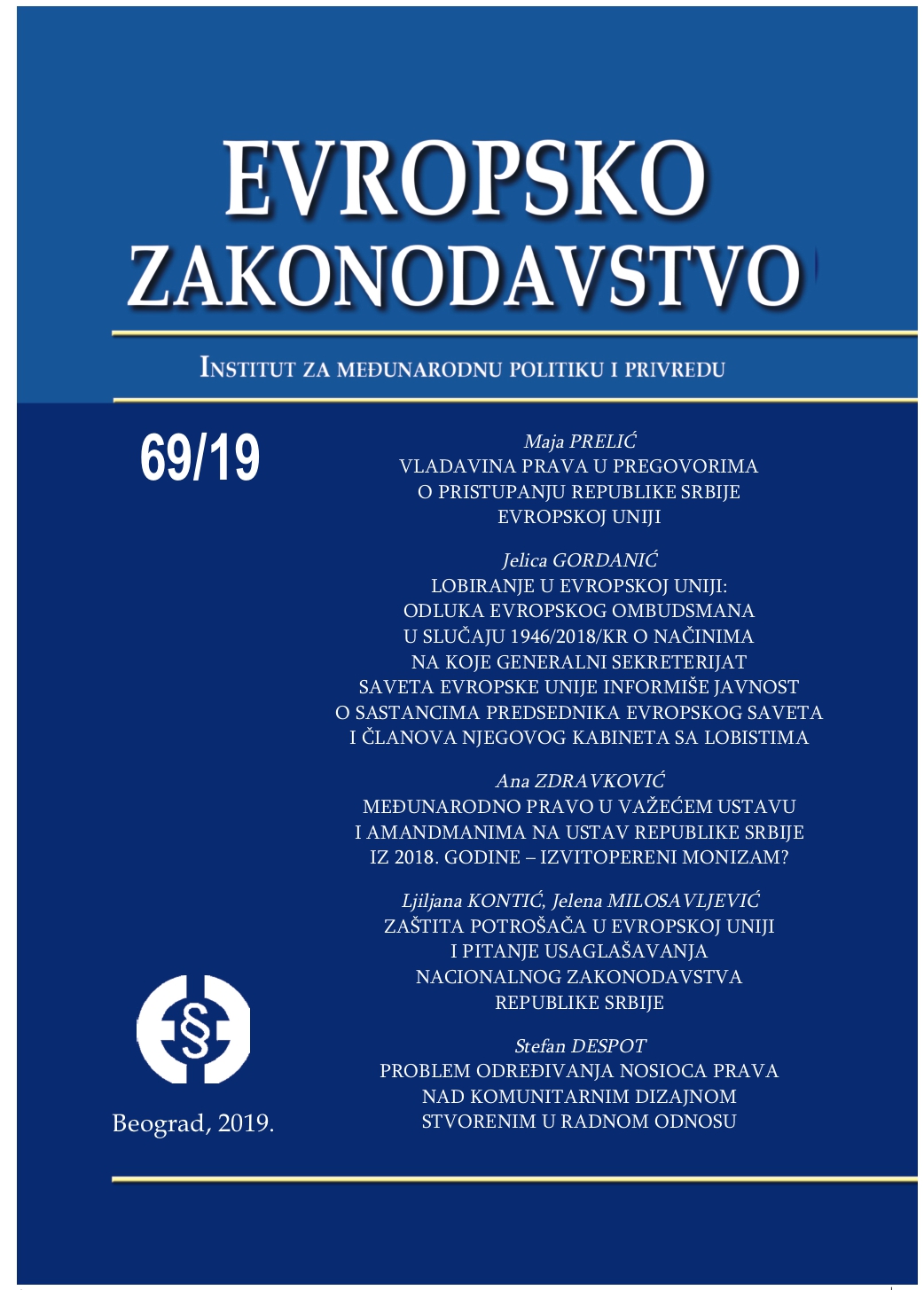Lobiranje u Evropskoj uniji: odluka Evropskog ombudsmana u slučaju 1946/2018/KR o načinima na koje Generalni sekretarijat Saveta Evropske unije informiše javnost o sastancima predsednika Evropskog saveta i članova njegovog kabineta sa lobistima
Lobbing the EU: Decision of the European Ombudsman in case 1946/2018/KR on how the Gerneral secretariat of the Council informs the public about the meetings that the European Council president and members of his private office have with interest repr
Author(s): Jelica GordanićSubject(s): Law, Constitution, Jurisprudence, EU-Legislation
Published by: Институт за међународну политику и привреду
Keywords: lobbying;European Ombudsman;European Council President;transparency;Transparency Register;
Summary/Abstract: Lobbying is a political process which can contribute to decision making and increasing democracy. If lobbying is not transparent, it can raise doubts about the work of political institutions. The paper analyzes the Decision of the European Ombudsman in Case 1946/2018 /KR on how the General Secretariat of the Council informs the public about meetings that the European Council President and members of his private office have with interest representatives. In this case, insufficient disclosure of information regarding meetings of the President of the European Council with lobbyists had been noticed. Besides, there was no record regarding meetings between lobbyists and members of his private office. In this case, the European Ombudsman recommends keeping a full record of any meetings held between interest representatives and the President of the European Council and/or members of his cabinet. The record should contain information such as the date and location, the names of the persons and organisations present- and, where applicable, their clients – as well as the issues discussed. The European Council President and members of his office should only meet with or attend events organised by lobbyists registered in the Transparency Register. The paper also examines the transparency of other EU institutions, as well as mechanisms for improving Transparency Register. EU institutions are not equally transparent. This fact might raise doubts about their work in the future. The author concludes that practical recommendations for EU civil servants to consult if and when they are interacting with interest representatives issued by the European Ombudsman should have been applied and endorsed by EU institutions.
Journal: Европско законодавство
- Issue Year: 2019
- Issue No: 69
- Page Range: 19-32
- Page Count: 14
- Language: Serbian

